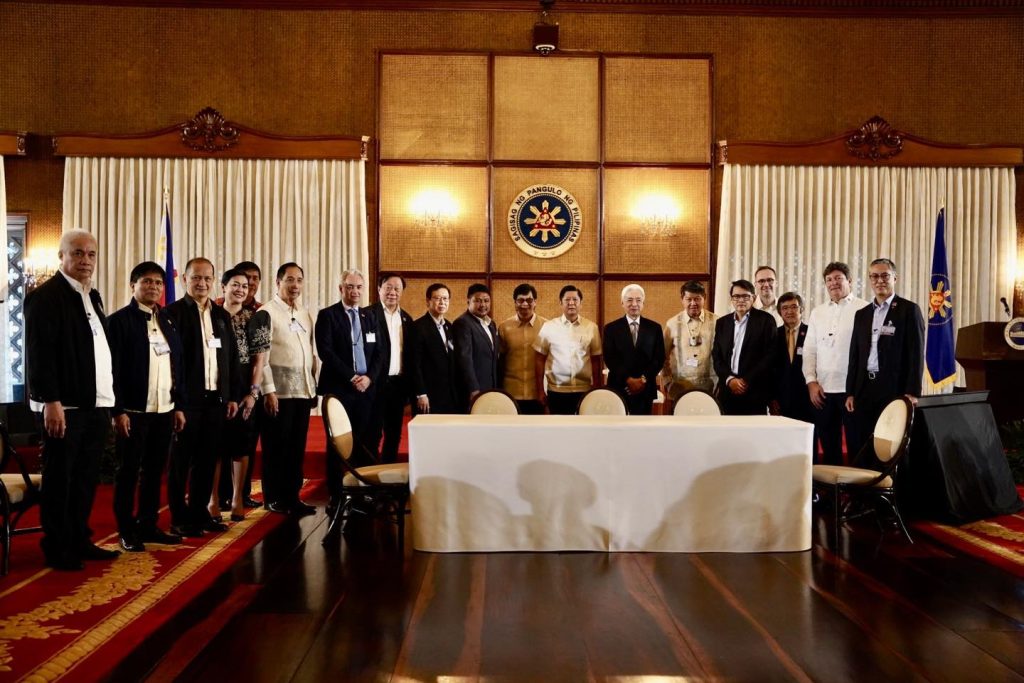
Women- Led MSMEs Receive Mentoring From First Lady, US Ambassador
March 24, 2023
Big-Brother Agri Companies, Government Agencies Begins Roadmap for Kapatid Angat Lahat Agri Program
March 28, 2023
Gathering The Big Brothers for Agriculture
What is perhaps the cruelest aspect of poverty is that it not just deprives people of access to the most basic of necessities, it also strips them of control over their future. Poverty can rob individuals of their dignity, as they are left with little to no options for improving their lives.
One solution that has been offered many times before to help people out of poverty is mentoring. By providing guidance and education, it is assumed that individuals can lift themselves out of poverty. However, we must couple mentoring with the opportunity to put the newfound knowledge into practice.
This is a crucial point that is often overlooked when discussing poverty alleviation. It is not enough to provide people with knowledge if they do not have the means to use it. The systemic barriers that prevent people from accessing opportunities, resources and capital must also be addressed.
It is misguided to suggest that the poor are poor simply because they do not know how to make money. The reality is that poverty is often the result of circumstances that make it difficult for individuals to access the resources and opportunities they need in order to succeed. The notion that the poor are lazy is downright insulting and does not reflect the reality of poverty here in the Philippines.
Access to resources and opportunities plays a significant role in achieving success, and this is especially true for MSMEs. At Go Negosyo, we have identified the three elements that we believe are needed for MSMEs to succeed: mentorship, access to money and access to markets.
However, small businesses often face an uphill battle. Although both small and large companies can make the same mistakes and encounter the same challenges, big corporations are better equipped to weather the storm. This reality was painfully clear during the pandemic, when many MSMEs were forced to shut down and some were left with debts they couldn’t pay.
One way to address these systemic barriers for our MSMEs is by integrating them into the value chain of big companies, where they can benefit from scale and become less vulnerable. This is most important in the agriculture sector, where scale means not just being more resilient, but becoming more productive.
Go Negosyo’s Kapatid Angat Lahat Agri Program (KALAP) emphasizes the role of big-brother companies in addressing the systemic problems that plague agriculture in our country. Under KALAP, the big-brother companies take the micro farmers under their wing and offer guidance, resources and a ready market for their products. It builds on the principles of contract-growing, but emphasizes giving farmers their fair share so that it becomes sustainable for both parties.
I am in admiration of companies that are willing to mentor MSMEs and take them into their value chain. They understand that doleouts are not enough and are not the solution. By providing individuals with the tools, resources and support they need to succeed, we help break the cycle of poverty and empower individuals to take control of their future. It addresses the systemic barriers that prevent our farmers from reaching their full potential.
James Amparo of Yovel East Research and Development – one of KALAP’s pioneer big-brother companies – observed during an interview about KALAP that most Filipino smallholder farmers cannot invest in quality seeds. Instead, they tend to use seeds until their fourth or fifth generation, which degrades in productivity over time. The reason for this is that small farmers have very little elbow room to accommodate swings in farmgate prices; so if they spend a fortune on seeds only to end up in a deficit when prices sink or a typhoon ravages the harvest, they might end up in debt and have no more capital to plant another season. That is why the big brothers are there: They have the capacity to absorb shocks and they have access to technology that mitigate the risks. And as they offer a guaranteed floor price for the produce, farmers need not worry about looking for a buyer for their goods and can instead concentrate on achieving productivity.
Getting small farmers on board and giving them a seat at the table is important. As President Marcos said during the ceremonial signing for KALAP, this is about giving a decent living to our farmers so that they can live by virtue of their hard work.
For Lionheart Farms’ Christian Moeller – another pioneer big brother in KALAP – he really dug deep and immersed himself in the communities in Palawan. Proof of this is he even got a very old-timer, 98-year-old Maman Buano Layom, to get on board the Lionheart model and stop his decades-old practice of kaingin. Maman became one of the farmers for Lionheart in 2016, and by the grace of the Heavens, he is still around to enjoy the fruits of this decision and even provide for his grandchildren.
Along with Yovel East and Lionheart Farms, several big-brother agriculture companies have already joined KALAP, each with their own successes in their sectors. These include Universal Leaf Phils., SL Agritech, Bounty Fresh, The LT Group, Kennemer Foods, Nestlé, Central Azucarera de Tarlac and Metro Pacific Agroventures.
It is easy to rely solely on “teaching people how to fish” and leave it at that because it delays the task of asking and answering the hard questions of what to do with land issues, inefficient distribution systems, climate resilience… the list goes on. Charity is important but it should lead us to ask why charity was necessary in the first place.

2/F RFM Corporate Center, Pioneer cor. Sheridan Sts. Mandaluyong City, Metro Manila, Philippines

